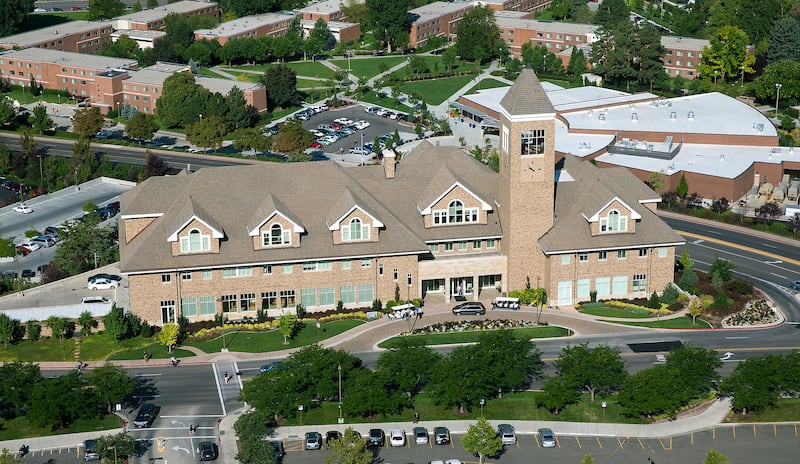PROVO — Despite facing significant pandemic-related financial losses, four universities and colleges owned by The Church of Jesus Christ of Latter-day Saints have turned down more than $54.1 million in federal stimulus funding.
Brigham Young University, BYU-Idaho, BYU-Hawaii and LDS Business College will use private funds to help students who suffered pandemic-related financial issues during the semester that ended last month instead of using the money allocated by the Coronavirus Aid, Relief, and Economic Security Act.
Eligible students could begin to receive support from the schools’ private funds in June.
Meanwhile, the future of on-campus classes remains cloudy. BYU has announced it won’t make a decision until July about whether students will return to the Provo campus classes in the fall.
Neither the church nor the schools applied for or received the CARES Act funding, and the schools have notified the U.S. Department of Education of their decision so the money can be used at schools in greater need of aid.
“We believe we can assist our students without the CARES Act funds,” BYU spokeswoman Carri Jenkins said in a statement. Students can receive help with their basic needs, such as food and housing.
The CARES Act allocated the following amounts for the schools:
• BYU: $32,272,986.
• BYU-Idaho: $18,172,623.
• BYU-Hawaii: $2,306,881.
• LDS Business College $1,422,523.
The total of $54.17 million nearly matched the $54.16 million the CARES Act awarded to Rutgers University, the third-highest amount in the nation. Arizona State University will receive the most, at $63,533,137, according to Fox Business.
The pandemic financial pressure has forced the permanent closure of at least one school, and the Chronicle of Higher Education predicts others will follow. BYU-Idaho’s statement said it deeply appreciated the CARES Act’s support of institutions of higher learning.
In separate statements, the Latter-day Saint schools said they have lost significant amounts of money because of the pandemic since suspending on-campus classes on March 12. The rest of the semester was held online.
BYU-Hawaii’s statement called the financial situation extremely challenging. LDS Business College, which will be renamed Ensign College in the fall, said it and every other private and public institution of higher education will continue to experience significant financial losses because of the pandemic.
The decision to forgo the federal funding is related to the church’s principles of self-reliance, Jenkins said.
“After expending their own resources and seeking assistance from family members, individuals are counseled to turn to the church community,” she said. “In that spirit, we have identified university funds that can be used to provide assistance to matriculated students enrolled during winter semester 2020 who need external help to meet the basic needs deprived them by the COVID-19 outbreak.”
The four church-operated schools have been helping students from last semester since March, they said in separate statements. The CARES Act funding is available only to U.S. citizens, but the church’s schools are providing aid to all students in need, including international, DACA and undocumented students. BYU-Hawaii, for example, provided emergency funds for travel assistance to some of its broadly international student body.
BYU-Hawaii also paid student employees for expected work schedules through winter semester and into the current spring semester. Each of the schools continues to employ a large number of students in campus jobs. BYU, for example, has 13,000 on-campus student jobs.
The plan to provide aid is designed to help students with expenses related to COVID–19 that were incurred between March 13 and the end of winter semester. The last day of final exams was April 22.
Students who were enrolled at BYU in Provo as of March 13 are eligible to apply for funds by June 1. Decisions on applications will be made in June. Those who receive assistance may choose direct refunds or to have money credited to their students accounts for current or outstanding charges.
The church operates the schools through the Church Educational System and boards of trustees that include the faith’s First Presidency, Quorum of the Twelve Apostles and other general officers.
The church subsidizes the tuition of every student.


 alt=Tad Walch
alt=Tad Walch